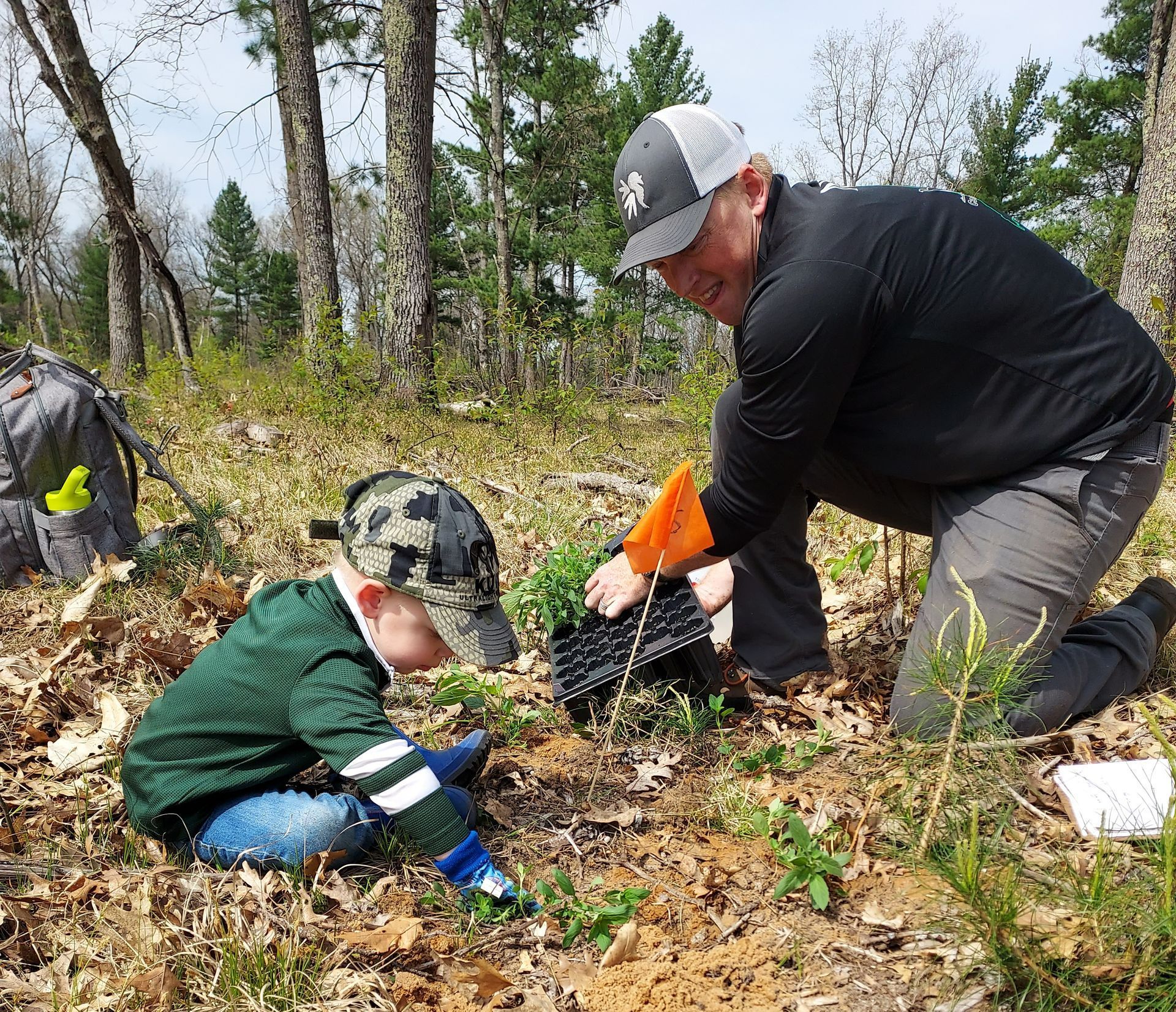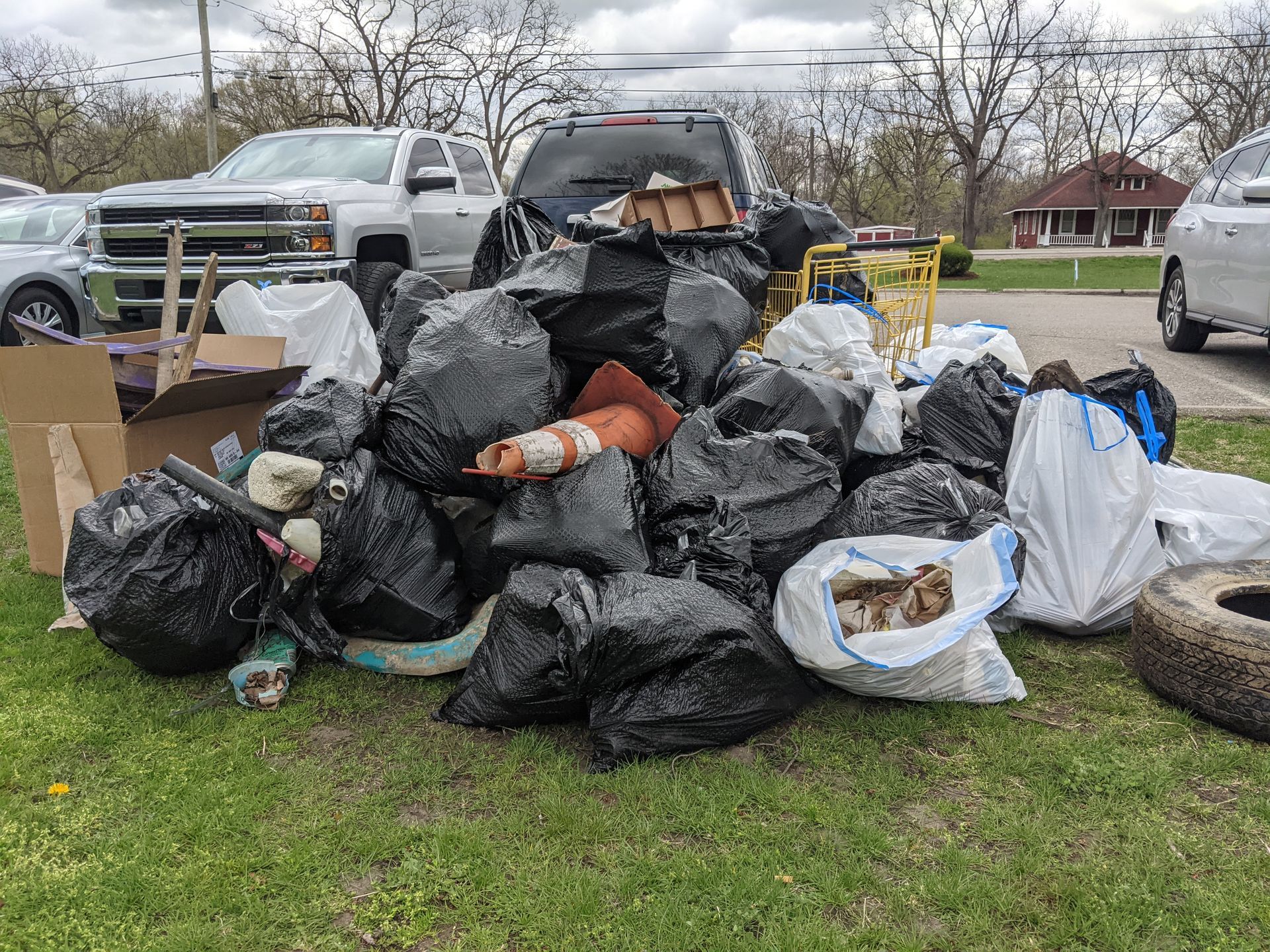OTG Volunteers Needed in St. Clair and Wayne/Monroe Counties
OTG Volunteers Needed in St. Clair and Wayne/Monroe Counties
MUCC’s On the Ground program will be in southeast Michigan this May to improve habitat for fish and wildlife. Volunteers are needed on Saturday, May 10th, from 9 AM to 12 PM to plant trees and on Saturday, May 17th, from 9 AM to 2 PM to clean up a watershed in a local State Game Area. These events will take place rain or shine, except in the event of severe weather, so please dress accordingly. All registered volunteers will receive lunch and a free appreciation gift for their efforts.
May 10th: Port Huron State Game Area Mast-Producing Tree Planting
MUCC will be On the Ground at the Port Huron State Game Area in partnership with the Michigan Department of Natural Resources (DNR), the Michigan Forest Association (MFA), and the National Wild Turkey Federation (NWTF). Habitat stewards will be planting mast-producing trees that will provide forage and cover for a variety of wildlife species. Volunteers will meet at the Kingsley Metcalf Loop Trailhead parking lot on Kingsley Rd. We will be planting swamp white oak trees, so closed-toed boots, long pants, and a long-sleeved shirt are recommended. Volunteers should plan to be outside for a minimum of three hours from 9 AM to 12 pm. Any necessary equipment, including work gloves and shovels, will also be provided. Snacks and water will be available throughout the day. Register HERE for this project.

Why are Oak Trees Important?
Oak trees support hundreds of wildlife species among a diversity of plants, according to the National Park Service (NPS). The leaves of oaks also provide food opportunities for hundreds of insect species in the early stages of life, creating more foraging opportunities for species that prey on insects like songbirds. As oaks regenerate, the young shoots provide a tender food for herbivores like Michigan’s white-tailed deer and rabbits. Each year, oak trees produce varying amounts of acorns (hard mast), which contain proteins, fats, and carbohydrates according to the NPS. Many species use this mast as it falls during the autumn season to balance their diet, including game species like white-tailed deer, turkey, grouse, and squirrels. Historically, oaks played a role in the diets of Native American tribes as it was used as a flour when ground into a powder.
May 17th: Clean-up at Pointe Mouillee State Game Area
Join our On the Ground program in partnership with the Pointe Mouillee Waterfowl Festival for a watershed clean-up at Pointe Mouillee State Game Area. This clean-up is meant to remove waste from the landscape to improve and enhance the quality of fish and wildlife habitat. Volunteers will meet at the Pointe Mouillee State Game Area headquarters building in Brownstown Township. We will be working along the shoreline, so closed-toed, waterproof boots or waders are recommended, along with long-sleeved shirts. Volunteers should plan to be outside for around six hours with snacks and water provided, as well as a lunch break for registered volunteers. Register HERE for this project.

Keeping the Watershed Clean
Clean-up efforts around rivers and watersheds help remove waste to improve habitat for fish and wildlife while also maintaining the beauty of our natural resources for recreationists to enjoy. Watersheds are the land draining into water bodies, which flow into larger reservoirs like the Great Lakes of Michigan. Due to this movement of water and sediment, it is important to keep the watersheds clean before there is a trickle-down effect to our larger resources, including drinking water, fish, and wildlife. Michigan, being the Great Lake State, recreationists and residents need to ensure we enhance the watersheds before our resources become negatively impacted. The Nature Conservancy reports that 40-50% of the water on Earth can’t support one or more of its uses (drinking, swimming, fishing). By cleaning watersheds, volunteers can help negate some of the negative impacts on the environment and limit harmful exposures for fish and wildlife while maintaining the resource for future generations.
Learn More
Want to volunteer your time to improve habitat for wildlife? Visit mucc.org/on-the-ground for more information and a list of upcoming projects. The On the Ground program works to conserve and enhance Michigan’s natural resources by hosting volunteer projects to improve wildlife habitat. Common habitat projects include brush pile building, invasive species removal, river cleanups, tree plantings, and more. All ages are welcome to attend, so bring a friend or two if you’d like! Families are welcome as well. Registered volunteers receive lunch and a free appreciation gift for their efforts.
Recent Posts



